[vc_row][vc_column][vc_column_text]
Biodata
Full Name: Christian Chukwuemeka Chukwu (MFR)
Date of Birth: 4th January, 1951
Nickname: Chairman
Start of Football Career: Childhood
Clubsides Played For: Olympics FC, Highlanders FC, Rangers International (all in Enugu)
Club Honourss Won: 5 FA Challenge Cup, 5 League Titles
National Team Honours: African Nations Cup Winner’s Gold Medal in 1980
Start of National Team Career: 1974
Opponents/Event: Congo Brazzaville. Nigeria won 2-0
First Nations Cup Appearance: 1978 in Ghana
Most Memorable Event: Not qualifying for the 1978 World Cup no thanks to an own goal scored by my team-mate Godwin Odiye in the last qualifying match against Tunisia in Lagos.
THE QUALIFIERS
WINNING the ticket to play at the 1978 Africa Cup of Nations was not easy for Nigeria. We had to negotiate two very tough qualifying rounds to scale through.
First, we played against Sierra Leone in Freetown and managed a 1-1 draw. We won the return leg 2-0 in Lagos and progressed 3-1 on aggregate. Our second opponent, Senegal were much tougher, however. They defeated us 3-1 in the first leg in Dakar and we had to fight very hard before securing a 3-0 win in the second lag in Lagos. We qualified 4-3 on aggregate and started looking forward to the Nations Cup finals in Ghana.
 PREPARATION AND SQUAD SELECTION
PREPARATION AND SQUAD SELECTION
The 1978 Nations Cup would have been my second appearance at the finals but for a misunderstanding between my club, Enugu Rangers and the National Sports Commission (NSC) before the 1976 tournament in Ethiopia. I was part of the team that qualified for the 1976 edition but I could not attend the finals alongside several other Rangers players because of our disagreement with the NSC. We made some requests which the NSC refused to grant and we had to pull out of the team.
I had actually made my national team debut in 1974 when I was called up by coach Dan Anyiam. He made me skipper of the national team when the then captain of the team, Dominic Ezeani left for the United States of America for studies.
It was a dream come true to be invited to the national team. It was a big honour in those days and I had always prayed for it. My first day in the camp was exciting. Most of the players were from my club, Rangers International of Enugu, but my room-mate during our preparations for the Nations Cup was Segun Odegbami of IICC Shooting Stars.
Our two teams were great rivals on the domestic scene, but the moment we got to the national team, we always put our club rivalry aside. In fact, Segun and I were the best of friends and we have remained so.
We had an intensive preparation. We embarked on training tours of African countries like Kenya, Zambia and Tanzania where we played their national teams in friendly games. It was going to be a national teams affair in Ghana so we couldn’t settle for anything less. I can’t quite remember the results but we won nearly all the friendly games we played.
The team also toured Europe. We camped in Yugoslavia, the home country of our coach, Father Tiko. Our training ahead of the Nations Cup was initially heavy after which we did road work for fitness. Then we had ballwork and tactical plays in that order. However, shortly before the commencement of the Nations Cup finals and during the competition proper, we did light training only.
As I stated earlier, Father Tiko was the head coach. He was on top of things and he related to the players quite nicely. He talked to us a lot, motivating us with inspirational talks. I prayed to be fit for the competition because I was sure of being selected for the Ghana party as long as I was fit because I was in top form. Only injury could have prevented me from playing at the Nations Cup.
Nigeria Airways airlifted us to the tournament proper.
MEMORIES
Nigeria played our group matches in Accra, the capital of Ghana. We were lodged at Ghana’s biggest five star hotel at the time, The Continental Hotels, Accra. We loved the hotel, its ambiance and facilities but nothing distracted us from the ‘business’ which we went there for.
I can’t quite remember who our camp commandant was. I could only remember Ibikunle Armstrong being in charge in 1974.
We had no problems with matters of welfare but for you to book a phone call at the hotel, you had to pay. And if you didn’t want to do your laundry, you had to pay from your pocket as well. That was standard practice in the national team then.
The food wasn’t bad. We usually ate continental dishes but sometimes we were served Nigerian delicacies. We used to have fun ‘yabbing’ ourselves on our way to the restaurant and bar. Apart from the football, we also funny guys who could crack your ribs with their jokes but I can’t pick out the funniest player in camp because we were all good at ‘yabis.’
My room-mate throughout the tournament was Segun Odegbami. And I remember quite well that during our relaxation periods, our hobby was to teach each other our respective local dialect. Segun taught me to speak Yoruba while I taught him to speak Igbo. In fact, I can say that most of my Yoruba vocabulary was picked up from Segun. We had great fun together.
Instructively, there was no case of indiscipline in our camp. Football stars could be stubborn but we were lucky that we had no case of stubborn players in our camp. Because of that, the whole team was able to focus on the task ahead of us.
We approached our matches seriously. The specific instructions given to us by the coaches was that I should take free kicks that came near the 18-yard box while Segun Odegbami or Muda Lawal would go for the corner kicks. Coach Tiko harped on the importance of team work, telling us not to play to the gallery. There was no controversy whatsoever during our games and indeed our entire stay in Ghana.
When we won games, we stayed together and sang then had some drink but no alcohol. And if we lost, we bowed our heads in sober reflections right there on the pitch and later off the pitch. We stayed together and strategized on how to improve in the next game.
Our daily camp allowance was Two Naira per player but I can’t remember now how much the match bonus was.
The music of late Fela Anikulapo Kuti was the toast of the Nigerian populace. We took audio tapes of the ‘Abami-Eda’s’ songs to Ghana because afro-beat, thanks to Fela, was in vogue. We relaxed in our hotel rooms listening to his songs.
Borgeous trousers which was popularly known as ‘bongo’ trousers; afro hair style and side burns were the in-thing in fashion and we were fully part of it. The Nigerian home video (movie) industry had not assumed much recognition at the time but great thespians like Herbert Ogunde, Sam Loco Efe, Eddie Ugbomah made us proud on the African continent with their films on celluloid at the cinemas.
The songs we normally sang on the team bus when going for matches were gospel songs. We sang them in different Nigerian languages particularly in Yoruba and Igbo. We had no particular lead singer or a particular player who led the team prayers before kick-off. Anyone could do that for us.
The NFA chairman was Mr. Sunday Dankoro. He was a good administrator. In those days, we had people who had passion for the game in charge of our football. The well-being of the players was paramount during Dankaro’s administration.
I was the captain of the side and I can say with all modesty that the leadership I provided was one based on example. I was a dedicated, scandal-free and disciplined leader on and off the pitch. I ensured that there was obedience of camp rules and harmony. I protected my team-mates.
THE TOURNAMENT
Nigeria were in the same first round group as the host country, Ghana and everybody was expecting an explosive clash because of the historical rivalry between the two countries. However, our opening match was against Upper Volta (now Burkina Faso) and we beat them easily by 4-2. I scored our first goal, Adokiye Amiesimaka scored one while Segun Odegbami scored two goals.
Our next game was against Ghana and it was one big occasion I will never forget. The game remains ever-green in my memory because the Black Stars were brought to the Accra Stadium in a helicopter! It must have been a big motivation for their players to beat us by all means, but we held our ground and the match ended 1-1. In fact, we scored first through Odegbami in the 33rd minute before Ghana managed an equalizer through a certain Klutse in the 76th minute. You can see that I still remember all the details of the match. Really, it is evergreen in my memory.
We played a goalless draw with Zambia in our last group game and because we finished second behind Ghana, we had to travel to Kumasi for our semi-final match against Uganda. We were very confident of qualifying for the final but Uganda surprised us, winning by two goals to one. Now, that is one game I don’t want to remember. Looking back, I have to say that maybe we were too confident and we paid the price. It was a huge disappointment for all the players including myself. But as the captain, I had to pick myself up and console my colleagues.
The third place match was against Tunisia and we were motivated for the game because the Tunisians had eliminated us at the last stage of the 1978 World Cup qualifiers just a few months before when Godwin Odiye scored an own-goal to give them (Tunisia) the World Cup ticket to Argentina ’78. Meeting them again in Ghana, we were determined not to lose a second time but they were the first to score an early goal. Odegbami equalized for us in the 30th minute, following which the Tunisians decided to abandon the match, claiming that the referee was biased against them.
All appeals to make them resume play failed and we also had to leave the pitch. Not surprisingly, CAF later awarded the match to Nigeria by two goals and that was how we took the bronze medal at the Nations Cup.
THE AFTERMATH
We were received on our return to Nigeria by officials of the Nigeria Football Association (NFA) who held a reception for us. Many Nigerians were also at the Lagos International Airport to catch a glimpse of the team. The media wrote complimentary remarks about us. On a personal note, I was rated as the fourth best player in Africa by the end of that year which wasn’t bad for a defender.
We did not get any special rewards for coming third at the 1978 Nations Cup. All we got was our match bonus but I can’t remember how much I realized in total.
I have no regret playing in the 1978 Nations Cup finals. My fondest memory, however, is that looking back now, I realize that majority of the Green Eagles players that featured in the 1976 and 1978 editions of the African Nations Cup were the mainstay of the victorious team that finally won gold at home for Nigeria in 1980. Of course, I am very happy being part of the history, too, and as captain for that matter.
Indeed, that 1980 achievement was the height of my career as a player since I was not lucky to play at the World Cup.
THE SQUAD
GOALKEEPERS: Emmanuel Okala (Rangers, Enugu), Godwin Efejukwu (Police, Lagos).
DEFENDERS: Annas Ahmed (Raccah, Kano), Christian Chukwu (cpt) (Rangers, Enugu), Godwin Odiye (National Bank, Lagos), Felix Owolabi (Rocks, Kaduna), Nnamdi Anyafor (Rangers, Enugu), Jide Dina (Jets, Jos), Kadiri Ikhana (Nigerian Army, Lagos), Tunde Bamidele (Taraba, Yola), Ignatius Ikechukwu (Rangers, Enugu).
MIDFIELDERS: Muda Lawal (IICC, Ibadan), Aloysius Atuegbu (Rangers, Enugu), Segun Adeleke (NEPA, Lagos), Eugene Ohuabunwa (Spartans, Owerri).
FORWARDS: Baba Ottu Mohammed (Raccah Rovers, Kano), Segun Odegbami (IICC, Ibadan), Martins Eyo (Berger, Lagos), Adokiye Amiesimaka (ACB, Lagos), Christopher Ogu (Insurance, Benin), Rufus Ejele (Nigerian Army, Lagos).
COACH: Jelisavcic “Tiko” Tihomir (YUGOSLAVIA); Carl O’Dwyer.
[/vc_column_text][/vc_column][/vc_row]

 PREPARATION AND SQUAD SELECTION
PREPARATION AND SQUAD SELECTION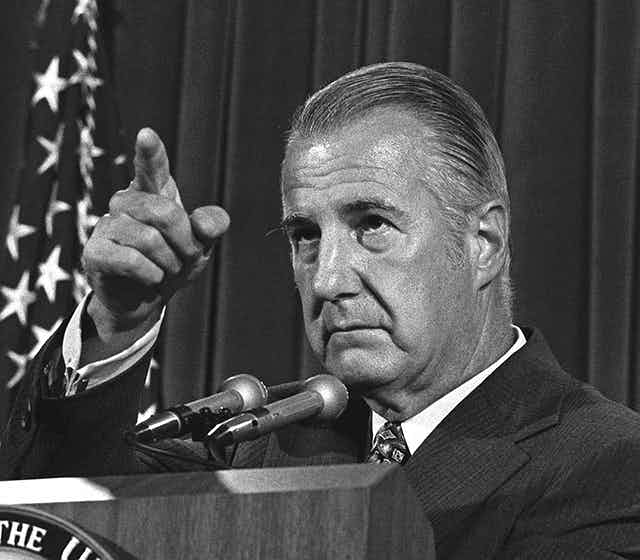
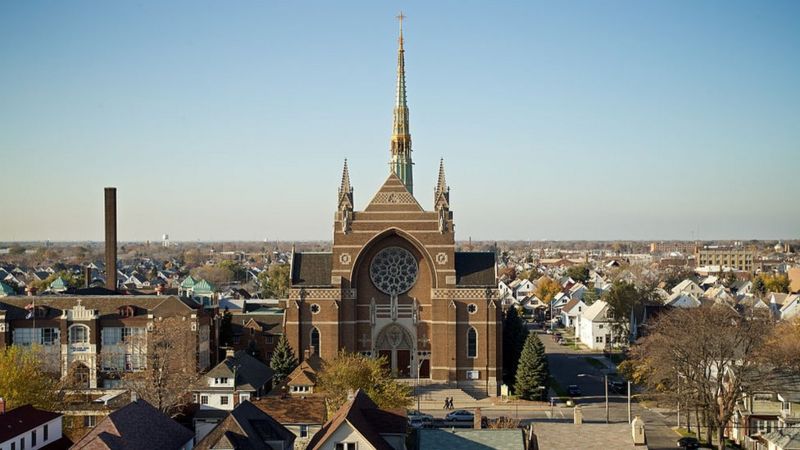
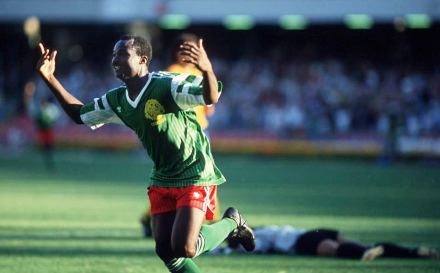
![Watch Odegbami recreate his first goal in the 1980 AFCON final [Video] 6 Watch Odegbami recreate his first goal in the 1980 AFCON final [Video] 4](https://naijasuperfans.com/wp-content/uploads/2020/03/20200323_165745.png)
![How Nigeria won AFCON in 1980 – Segun Odegbami with Mumini Alao [Video] 7 How Nigeria won AFCON in 1980 – Segun Odegbami with Mumini Alao [Video] 5](https://naijasuperfans.com/wp-content/uploads/2020/03/20200321_201622.png)


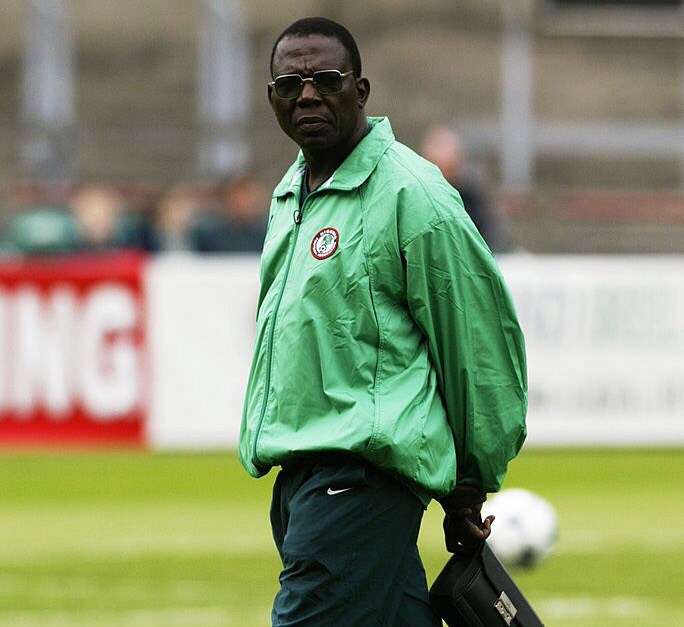
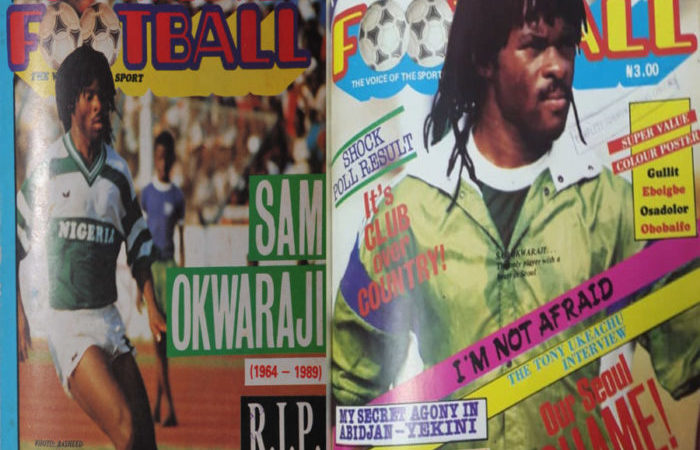
The disappointment he had to go through for missing out of the 1976 Nations Cup Ethiopia due to disagreement his club and the national sports commission was really a bad one Christian Chukwu at that time.